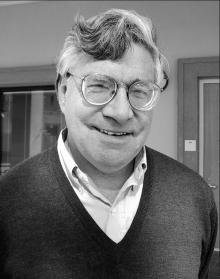
Hostility to trade unionism on the part of American conservatives has been a feature of this country's political landscape for decades. That animosity will likely be at the forefront over the next few months as the United States Congress begins debate on the Employee Free Choice Act, the first major effort to reform American labor law in more than 60 years.
In anticipation of that legislative fight, a group of historians, economists, sociologists, and legal scholars from around the world will gather at UC Santa Barbara for a conference titled "The American Right and U.S. Labor: Politics, Ideology, and Imagination." According to conference director Nelson Lichtenstein, participants will explore the legal, rhetorical, economic, and political resources that political conservatives have deployed to marginalize and delegitimize self-organization among American workers today and over the last century.
The conference will take place January 16-17 in the McCune Conference Room, 6020 Humanities and Social Sciences Building. It is open to the public.
"This conference offers participants an historical understanding of how and why proposed labor law reforms, such as the contemporary Employee Free Choice Act, have generated so much heated debate for so many years and under such a divergent set of economic and political circumstances," said Lichtenstein, a professor of history and director of UCSB's Center for the Study of Work, Labor and Democracy
The Employee Free Choice Act (EFCA), which passed the House of Representatives in the last Congress, but which now faces intense opposition in the senate, requires that when a majority of employees has signed authorization cards designating a union as their bargaining representative, the National Labor Relations Board will certify the union even without an election. Unionists have long complained that the often lengthy election process offers employers opportunity to intimidate or fire union supporters.
The proposed labor law also provides for arbitration of a first contract if collective bargaining fails to generate an agreement. In addition, EFCA strengthens penalties against companies that break the law during organizing campaigns and contract negotiations.
Covering a broad range of historical and legal topics from the Progressive Era to the present, conference participants will offer talks and papers on a series of contentious issues, including labor racketeering as idea and reality, capital mobility in a global marketplace, race and ethnicity in union organizing campaigns, and the role of the American South in U.S. labor politics. The keynote speaker will be Fred Feinstein, general counsel of the National Labor Relation Board during the Clinton administration. His talk is titled "Embattled for 30 Years."
"The next few months promise to generate intense debate on key issues facing the labor movement, as well as working Americans in general," said Lichtenstein. "The effort to pass –– or defeat –– the Employee Free Choice Act will be central to this fight, but so too are questions arising over the role labor will play in the bailout of the financial, housing, and automobile sectors of the economy and in the character of the economic stimulus package now being crafted by the Obama administration.
"An understanding and deconstruction of the opposition to U.S. trade unionism requires something more than mere condemnation," he said. "That's especially true during the next few years when an effort to reform American labor law, along with the rise of labor's influence within the Democratic Party, is almost certain to generate a furious and determined counterattack from those who seek to limit its power and marginalize its legitimacy."
The conference is sponsored by UCSB's Center for the Study of Work, Labor, and Democracy, as well as the campus's Interdisciplinary Humanities Center, Department of History, College of Letters and Sciences, and Hull Chair in Feminist Studies; UCLA's Institute for Research on Labor and Employment; and the University of Pennsylvania Press.
Related Links



